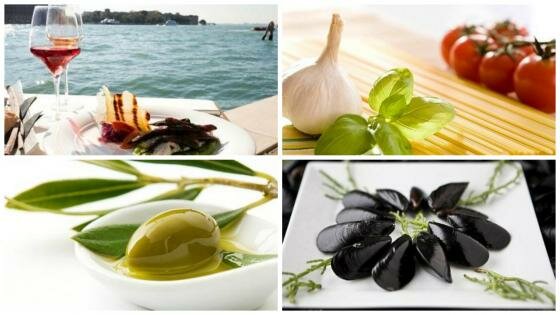The Greek Presidency has a lot on its plate
Southern Europeans share a common secret, so genuine, that even scientists attest to its veracity: good food for better living! The Mediterranean diet, which encapsulates this essence, is worth promoting. The Greek Presidency has decided to offer its guests Greek cuisine delicacies and acquaint them with Mediterranean living.
From Spain to Cyprus
The Med diet is more of a nutritional model rather than a diet in the usual sense of the word. Over millennia, populations inhabiting countries bordering the Mediterranean Sea have developed a plethora of dietary habits, all connected to their intuition, trade, wealth and scientific achievements. The diversity of cultures in and around the Iberian Peninsula, Muslim Maghreb and from Malta to Israel has made it possible to refer to not just one type of Mediterranean diet, but several.
We are what we eat
The European type has remained constant over time and space, consisting mainly of olives and olive oil, grains, fruit and vegetables, with moderate amounts of dairy products, seafood, and meat, as well as a variety of condiments and spices. Meals are customarily accompanied by moderate amounts of wine, which is often home-made or home-grown.
The merits of these countries’ dietary patterns remained mostly unknown all through the 20th century until the ‘90s, when medical research touted the benefits of the Mediterranean diet, associating it with lower occurrence of coronary diseases and cancer, as well as a higher life expectancy.
Heritage worth preserving
Since November 2010, the Mediterranean Diet has been recognized by UNESCO as an Intangible Cultural Heritage of Italy, Spain, Greece and Morocco, reinforcing it thus as not only a fundamental part of their history and background, but as a huge contribution to the world as well. Portugal, Cyprus and Croatia were added to the list in 2013.
Quality comes first
Greek gastronomy has a recorded history of over 4,000 years. Greeks enjoy a huge variety of excellent quality agricultural and dairy products. Olives and olive oil, cheeses, wines, mastic and saffron are but a few of the products that have won international acclaim as Protected Designation of Origin (PDO) goods and received important distinctions for their quality and particularly delectable characteristics. Greece’s trademark is its olive oil. The country is the third largest producer of edible olives and olive oil, after Spain and Italy. Moreover, 75% of Greece’s production is extra virgin olive oil, which is considered to be the best type.
The culture of eating together
In Plutarch's Lives of the Noble Greeks and Romans, the writer explains ‘men are invited not to eat and drink, but to eat and drink together’. Eating Greek consists of skills and know-how, acquired over time and passed from one generation to another; a resourcefulness in utilizing what little the earth and sea have bred for sustenance; and most importantly, the cherished social interaction which the dinner table has always implied.
5 things you may not know
- The word diet comes from the Greek dieta, a word meaning balanced lifestyle.
- The traditional Mediterranean diet delivers as much as 40% of total daily calories from fat, yet it reduces up to 30% the risk of heart disease.
- It also increases the amount of "Omega-3 fatty acids," a substance which the rest of the developed world does not get enough of.
- The people of the island of Crete are among the longest living in the world. So is the case with Ikaria, another island in the Aegean, where people are three times more likely to reach age 90 than in the U.S.
- The first cookbook in history was written as early as 330 B.C. It was written by a Greek named Archestratos from Seracuse who underlined that a people’s diet is a sign of its culture.







